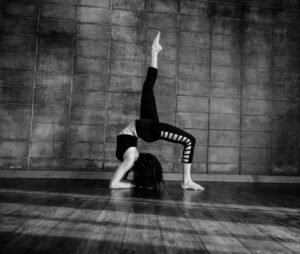Comprehensive Guide of Playing Drums
Overview
Playing drums is a dynamic and engaging hobby that involves using percussion instruments to create rhythm and music. Drumming can be performed solo or as part of a group, making it a versatile activity that fosters both individual expression and collaboration. Drummers use various types of drums, such as snare drums, bass drums, tom-toms, and cymbals, to produce a wide range of sounds and styles. This hobby not only enhances musical skills but also improves coordination, timing, and physical fitness. Many people find drumming to be a powerful outlet for emotions, providing a sense of release and joy through the act of playing.
History
The history of drumming dates back thousands of years, with evidence of percussion instruments found in ancient cultures around the world. Drums have been used in religious ceremonies, military contexts, and social gatherings, serving as a means of communication and expression. The earliest known drums, made from animal skins and hollowed-out logs, were discovered in Mesopotamia and date back to around 3000 BCE. Over the centuries, drumming has evolved into various styles, including African drumming, orchestral percussion, and modern drum kit playing. Influential drummers like Buddy Rich, John Bonham, and Sheila E. have shaped the landscape of drumming, inspiring countless enthusiasts to take up the hobby.
Popularity and Demographics
Playing drums is a popular hobby enjoyed by individuals of all ages and backgrounds. It appeals to a diverse demographic, from children taking their first music lessons to adults seeking a creative outlet. According to a survey by the National Association of Music Merchants, approximately 20% of music students in the United States choose percussion instruments, with drums being the most favored. Drumming communities thrive in schools, music camps, and online platforms, where enthusiasts can share their passion and learn from one another. The rise of online tutorials and drumming apps has made it easier for beginners to start playing, while social media allows drummers to showcase their skills and connect with fellow musicians worldwide.
Sponsored Hobbyists and Vendors
Become a Sponsor!
Affiliate Disclaimer: Throughout some sections below, Hobby Spotlight may suggest some tools, equipment or material using affiliate links. By purchasing any of those items, Hobby Spotlight may earn a small commission. This helps fund our website, content and services without directly charging our users.
Getting Started
Essential Drumming Equipment:
Beginner
- Drumsticks: Basic pair of drumsticks for beginners.
- Practice Pad: A rubber practice pad for quiet drumming practice.
- Metronome: A device to help keep time while practicing.
- Drum Tuner: A tuner to help adjust the tension of drum heads.
- Drum Kit: A basic drum kit for beginners, including snare, bass, and toms.
Intermediate
- Cymbals: A set of cymbals to enhance the drum kit sound.
- Drum Throne: An adjustable seat for comfortable drumming.
- Drumsticks Variety Pack: A variety pack of drumsticks for different playing styles.
- Drum Machine: An electronic device for creating drum beats and patterns.
- Drum Recording Interface: An interface for recording drums to a computer.
Basic Requirements and Initial Setup:
- Drum Kit: A standard drum kit typically includes a bass drum, snare drum, toms, hi-hat, cymbals, and a drum throne. Beginners can start with an acoustic or electronic kit based on their space and noise considerations.
- Practice Space: A dedicated area for practice is essential. This space should be soundproofed if possible, to minimize noise disturbance, and should have enough room for the drum kit and the drummer to move comfortably.
- Essential Accessories: Invest in quality drumsticks, a metronome for timing, and a practice pad for quiet practice. Additional accessories may include a drum rug to keep the kit in place and a music stand for sheet music.
Fundamental Skills to Learn:
- Basic Rhythms: Understanding and playing basic rhythms is crucial for developing timing and coordination.
- Stick Control: Mastering grip and control of the drumsticks is essential for dynamic playing and speed.
- Coordination: Developing the ability to coordinate hands and feet to play different parts of the drum kit simultaneously.
- Reading Sheet Music: Learning to read drum notation helps in understanding and playing various drum patterns and songs.
- Timing and Tempo: Practicing with a metronome to develop a strong sense of timing and the ability to play at various tempos.
Sub-Hobby/Common Activities:
- Drum Circles: Participating in group drumming sessions that focus on rhythm and community engagement.
- Solo Drumming: Practicing and performing solo pieces to develop personal style and technique.
- Playing in a Band: Collaborating with other musicians to create music, which enhances timing and adaptability.
- Recording Drums: Learning to record drum tracks for personal projects or collaborations, which involves understanding audio equipment and software.
- Drumline Participation: Joining a drumline or marching band to develop skills in ensemble playing and performance techniques.
Terminology:
- Backbeat: A strong accent on the second and fourth beats of a measure, commonly used in rock and pop music.
- : The rhythmic feel or swing of a piece of music, often created by the interplay of drums and bass.
- : A short musical phrase played on the drums to transition between sections of a song.
- : A basic drum rudiment consisting of a pattern of alternating strokes: right, left, right, right, left, right, left, left.
- : A technique where the stick strikes both the rim and the head of the snare drum simultaneously, producing a sharp sound.
- : A fast drumming technique often used in extreme metal genres, characterized by rapid double bass and snare hits.
- : A rudiment where each hand plays two consecutive strokes, creating a smooth, flowing sound.
- : A technique where the stick is laid across the snare drum’s rim, producing a distinct sound.
- : A rhythmic concept where emphasis is placed on beats that are typically unaccented, creating a sense of surprise.
- : A device that produces a steady beat to help musicians maintain a consistent tempo during practice.
Advanced Topics and Specializations
Advanced Tools and Equipment:
- Electronic Drum Kit: A high-end electronic drum kit with multiple drum sounds, MIDI capabilities, and customizable settings for professional practice and performance.
- Drum Tuner: An advanced drum tuner that provides precise tuning for each drum, ensuring optimal sound quality and performance.
- Drumsticks with Custom Grip: Professional-grade drumsticks designed with ergonomic grips and various weights for enhanced control and comfort during play.
- Metronome with Advanced Features: A digital metronome with customizable time signatures, subdivisions, and a variety of sounds to improve timing and rhythm skills.
- Drum Practice Pad: A high-quality practice pad that mimics the feel of a real drum, perfect for silent practice and developing technique.
Advanced Projects and Achievements:
- Original Composition: Creating and performing original drum compositions that showcase unique rhythms and styles, often incorporating various genres such as jazz, rock, and funk.
- Drum Circle Facilitation: Leading community drum circles that promote collaboration, creativity, and cultural exchange through rhythm and music.
- Recording Sessions: Participating in professional recording sessions, contributing to albums or soundtracks, and collaborating with other musicians to create polished tracks.
Advanced Techniques and Methods:
- Polyrhythms: Mastering the ability to play multiple contrasting rhythms simultaneously, enhancing musical complexity and depth.
- Brush Techniques: Utilizing brushes instead of sticks to create softer, more nuanced sounds, particularly in jazz and acoustic settings.
- Double Bass Pedal Techniques: Developing proficiency in using a double bass pedal to create rapid bass drum patterns, adding intensity and speed to performances.
Specializations and Niche Areas:
- World Drumming: Exploring traditional drumming styles from various cultures, such as African djembe, Indian tabla, or Brazilian samba.
- Electronic Drumming: Integrating electronic drum kits and MIDI technology to create hybrid performances that blend acoustic and digital sounds.
- Drumline and Marching Band: Specializing in the techniques and rhythms specific to drumline performances, including cadence and field show routines.
- Session Drumming: Focusing on the skills required to perform as a hired drummer in various musical settings, adapting to different styles and genres.
- Drum Repair and Maintenance: Gaining expertise in the care and repair of drums, including tuning, head replacement, and hardware adjustments.
Future Trends and Innovations:
- Increased use of hybrid drum kits that combine acoustic and electronic elements for versatile performances.
- Growing popularity of online drumming communities and virtual lessons, making education more accessible.
- Integration of augmented reality (AR) and virtual reality (VR) in drumming tutorials and practice sessions.
- Emphasis on sustainability in drum manufacturing, with a focus on eco-friendly materials and practices.
- Expansion of drumming as a therapeutic tool, promoting mental health and wellness through rhythm and music.
Technology Integrations:
- Digital Audio Workstations (DAWs): Utilizing software for recording, editing, and producing drum tracks, allowing for greater creativity and precision.
- Drum Apps: Mobile applications that provide metronomes, practice routines, and play-along tracks to enhance drumming skills.
- Online Collaboration Tools: Platforms that enable musicians to collaborate remotely, sharing drum tracks and ideas in real-time.
- Smart Drum Kits: Advanced electronic drum kits equipped with features like built-in coaching, recording capabilities, and connectivity to apps.
- Video Streaming for Live Performances: Leveraging platforms like YouTube and Twitch to showcase drumming skills and connect with audiences globally.
Further Learning and Resources
Books:
- Drumming for Dummies by Jeff Strong: An accessible guide that covers the basics of drumming, including techniques, rhythms, and exercises for beginners.
- The Drummer’s Bible by Mick Berry and Jason Gianni: A comprehensive resource for beginners, featuring various styles, techniques, and over 200 grooves to practice.
- Stick Control: For the Snare Drummer by George Lawrence Stone: A classic book that focuses on developing stick technique and control through various exercises, ideal for new drummers.
- The New Breed by Gary Chester: An advanced drumming book that emphasizes coordination and independence, offering challenging exercises for experienced drummers.
- Drum Set Essentials by Peter Erskine: A detailed exploration of advanced drumming concepts, techniques, and styles from a renowned drummer and educator.
- Advanced Techniques for the Modern Drummer by Jim Chapin: A seminal work that delves into advanced coordination and independence techniques, suitable for serious drummers looking to enhance their skills.
Websites:
- Drum Magazine, https://www.drummagazine.com – A comprehensive resource for drummers featuring articles, gear reviews, and instructional content.
- Modern Drummer, https://www.moderndrummer.com – Offers news, interviews, and educational resources for drummers of all levels.
- Drumeo, https://www.drumeo.com – An online platform providing video lessons, play-along tracks, and a community for drummers.
- Vic Firth, https://www.vicfirth.com – Known for drumsticks, this site also offers educational resources and play-along videos.
- Drum Lessons, https://www.drumlessons.com – A site dedicated to providing free and paid drum lessons for beginners and advanced players.
Courses:
- Drumeo Edge, https://www.drumeo.com/edge – A subscription service offering a vast library of drum lessons for all skill levels.
- Udemy Drum Courses, https://www.udemy.com/courses/search/?q=drumming – A variety of courses ranging from beginner to advanced techniques in drumming.
- MasterClass with Questlove, https://www.masterclass.com/classes/questlove-teaches-drum-set – Learn drumming techniques and insights from the renowned musician.
- Berklee Online Drum Set Course, https://online.berklee.edu/courses/drum-set – An online course focusing on drum set techniques and styles, suitable for various skill levels.
- Skillshare Drumming Classes, https://www.skillshare.com/browse/drumming – Offers a range of classes for beginners to advanced drummers, focusing on different styles and techniques.
Content Creators and Community
Content Creators:
- Drumeo (YouTube): A comprehensive drumming platform offering lessons, tutorials, and play-along tracks from professional drummers, catering to all skill levels.
- Mike Maguire (YouTube): Known for his engaging drum lessons and play-along videos, Mike provides tips and techniques for drummers looking to improve their skills.
- Stephen Taylor (YouTube): Offers a variety of drumming tutorials, gear reviews, and performance videos, focusing on both technique and creativity.
- Adam Tuminaro (Instagram): A drummer and educator sharing short, informative videos on drumming techniques and practice tips, engaging a large community of drummers.
- The Drum Coach (YouTube): Provides structured lessons and practice routines designed to help drummers develop their skills and musicality.
- Drum Lessons (YouTube): A channel dedicated to beginner and intermediate drummers, offering a wide range of lessons on various styles and techniques.
- Mike’s Drumming (TikTok): A fun and engaging platform where Mike shares quick drumming tips, challenges, and creative drumming content.
Online Forums and Social Media Groups:
- Reddit – /r/drums: A vibrant community for drummers to share tips, ask questions, and discuss all things related to drumming.
- Facebook Drumming Groups: Various groups where drummers connect, share videos, and exchange advice on techniques and gear.
- Drum Forum: An online platform for drummers to discuss techniques, gear, and share their experiences.
- Instagram Hashtags (#drumming, #drummer): Follow trending drumming content, techniques, and inspiring performances from drummers worldwide.
- Pinterest Boards: Discover a wealth of drumming resources, including practice tips, exercises, and inspirational videos curated by fellow drummers.
Local Clubs and Organizations:
- Community Music Schools: Many local music schools offer drumming classes and workshops for all ages and skill levels.
- Local Drum Circles: Gatherings where drummers of all backgrounds come together to play, learn, and share their passion for rhythm.
- Music Stores: Often host drumming workshops and clinics featuring local drummers and educators.
- Drumline Associations: Organizations that provide opportunities for drummers to participate in competitions and community events.
- Meetup Groups: Platforms like Meetup.com host local drumming clubs and jam sessions for enthusiasts to connect and play together.
Events, Meetups, and Conventions:
- Drum Festivals: Events celebrating drumming with performances, workshops, and masterclasses from renowned drummers.
- Local Music Competitions: Regional contests that encourage drummers to showcase their skills and creativity.
- Music Expos: Many expos feature drumming demonstrations, gear showcases, and opportunities to learn from industry professionals.
- Workshops at Music Camps: Learn from experienced drummers and educators in immersive drumming environments.
- Drumming Conventions: Events that combine performances, networking, and educational sessions for drummers of all levels.
Associated Hobbies
- Music Composition: Many drummers enjoy composing their own music, creating unique rhythms and beats that can enhance their drumming skills and provide a creative outlet.
- Percussion Instruments: Exploring other percussion instruments, such as tambourines, congas, or marimbas, can complement drumming and broaden a musician’s skill set.
- Band Participation: Joining a band or ensemble allows drummers to collaborate with other musicians, improving their timing, rhythm, and overall musicality while providing a social aspect to the hobby.
- Music Theory: Understanding music theory can greatly enhance a drummer’s ability to read music, improvise, and communicate with other musicians, making it a valuable associated hobby.
- Live Performance: Many drummers find joy in performing live, whether at local venues, community events, or even online platforms, which can boost confidence and stage presence.
- Drum Circle Participation: Engaging in drum circles fosters a sense of community and allows drummers to explore improvisation and rhythm in a supportive environment.
- Recording and Production: Learning about music recording and production can enhance a drummer’s understanding of how their contributions fit into a larger musical context, leading to a more well-rounded skill set.
- Drum Maintenance and Customization: Many drummers take pride in maintaining and customizing their drum kits, which can include tuning, cleaning, and even building their own drums, adding a personal touch to their setup.
Cost and Budgeting
Initial Investment and Ongoing Costs:
- Initial Investment: The cost to start playing drums can vary significantly based on the type of drum set you choose. A basic acoustic drum kit can range from $300 to $800, while electronic drum kits can start around $400 and go up to $2,000 or more for high-end models. Additionally, you may need to invest in accessories such as a drum throne, sticks, and a metronome, which can add another $50 to $200 to your initial costs.
- Ongoing Costs: Ongoing costs include replacement drumsticks, which typically cost between $10 and $20 per pair, and drumheads that may need to be replaced periodically, costing around $20 to $100 each depending on the type. If you take lessons, that can add to your monthly expenses, typically ranging from $30 to $100 per hour. Additionally, maintenance for electronic kits may require software updates or replacement parts.
Budget-Friendly Options:
- Used Gear: Look for second-hand drum kits on platforms like Craigslist, Facebook Marketplace, or local music stores. You can often find quality gear at a fraction of the new price.
- Practice Pads: If you’re just starting out, consider investing in a practice pad and a pair of sticks instead of a full kit. This can help you develop your skills without a large initial investment.
- Drum Lessons Online: Utilize free or low-cost online resources, such as YouTube tutorials or apps, to learn drumming techniques without the expense of private lessons.
Where to Buy:
- Local Music Stores: These shops often have knowledgeable staff who can help you choose the right drum kit and accessories, and you may be able to test the equipment before purchasing.
- Online Retailers: Websites like Sweetwater, Guitar Center, and Amazon offer a wide selection of drum kits and accessories, often with customer reviews to help guide your purchase.
- Drum Specialty Shops: Stores that specialize in percussion instruments may have a more curated selection and can provide expert advice on the best gear for your needs.
Money Making
How to Turn the Hobby into a Profession or Side Hustle:
- Drum Instructor: Share your passion for drumming by offering lessons to beginners or advanced students. You can teach in-person at local music schools or offer online lessons through platforms like Zoom. Tailor your curriculum to different skill levels and styles, from rock to jazz, and create a flexible schedule that suits your availability.
- Session Drummer: Use your drumming skills to work as a session musician for recording artists, bands, or producers. Build a portfolio of your work and network within the music industry to find opportunities. This role often involves recording drum tracks for various genres, allowing you to showcase your versatility and creativity.
- Drum Circle Facilitator: Organize and lead drum circles in your community or at events. This can be a fun and engaging way to bring people together through music. You can charge a fee for participation and provide drums for those who don’t have their own, creating an inclusive environment for all skill levels.
- Drum Product Reviewer: Start a blog or YouTube channel dedicated to reviewing drum kits, accessories, and gear. Share your insights and experiences with different products, helping fellow drummers make informed purchasing decisions. Monetize your content through affiliate marketing, sponsorships, and ad revenue.
- Drumline Coach: If you have experience with marching bands or drumlines, consider coaching a local high school or community group. This role involves teaching drumming techniques, arranging music, and preparing the group for competitions. It can be a rewarding way to share your knowledge and inspire young musicians.
Benefits and Enjoyment
Physical, Mental, and Social Benefits:
- Physical Activity: Playing drums is a full-body workout that engages various muscle groups, improving coordination, strength, and endurance. The act of drumming can enhance cardiovascular health and promote better motor skills.
- Mental Stimulation: Drumming requires concentration and mental agility, as drummers must read music, keep time, and coordinate their limbs. This mental engagement can improve cognitive functions, such as memory and problem-solving skills.
- Emotional Expression: Drumming provides an outlet for emotional expression and creativity. It can be a therapeutic way to release stress and pent-up emotions, leading to improved mental well-being and emotional resilience.
- Social Connection: Playing drums often involves collaboration with other musicians, fostering teamwork and communication skills. Whether in a band or a casual jam session, drumming creates a sense of community and shared experience.
Success Stories and Inspirational Examples:
- Buddy Rich: Renowned as one of the greatest drummers in jazz history, Buddy Rich’s incredible technique and showmanship inspired countless musicians. His career spanned several decades, and he remains a significant influence in the drumming community.
- Sheila E.: A talented percussionist and singer, Sheila E. gained fame for her work with Prince and her successful solo career. She has inspired many aspiring female drummers and musicians, showcasing the power of passion and dedication in the music industry.
- Dave Grohl: The former drummer of Nirvana and frontman of Foo Fighters, Dave Grohl’s journey from drummer to rock star exemplifies how a passion for drumming can lead to a successful and influential career in music.
Ways to Enjoy and Grow in the Hobby:
- Take Lessons: Whether online or in-person, taking drumming lessons from a qualified instructor can significantly improve your skills. Personalized feedback and structured learning can help you progress faster and develop a solid foundation.
- Join a Drumming Group: Participating in a local drumming group or ensemble can enhance your skills and provide opportunities for collaboration. Playing with others can also introduce you to new styles and techniques.
- Experiment with Different Genres: Explore various music genres, such as rock, jazz, funk, or world music. Each style offers unique rhythms and techniques, broadening your musical horizons and enhancing your versatility as a drummer.
- Record Yourself: Recording your practice sessions can help you track your progress and identify areas for improvement. Listening to your recordings allows you to hear your playing from a different perspective and refine your technique.
Challenges and Solutions
Common Challenges Faced by Hobbyists:
- Cost of Equipment: Playing drums can require a significant investment in gear, including drums, cymbals, and accessories. Beginners may feel overwhelmed by the variety of options and prices, making it challenging to start without breaking the bank.
- Space Constraints: Drumming can be loud, and not everyone has the space to set up a full drum kit. This can lead to difficulties in practicing regularly, especially in shared living environments or apartments.
- Learning Curve: Mastering the drums takes time and dedication. Many beginners may struggle with rhythm, coordination, and technique, leading to frustration and potential discouragement.
Tips for Overcoming These Challenges:
- Start with a Practice Pad: If you’re concerned about costs or space, consider starting with a practice pad and a pair of drumsticks. This allows you to develop your skills without the need for a full drum kit.
- Consider Electronic Drums: Electronic drum kits can be a great solution for those with space constraints. They are quieter than acoustic drums and often come with built-in practice features and sound options.
- Set Realistic Goals: Break down your learning process into manageable goals. Focus on mastering one technique or rhythm at a time, and celebrate your progress to stay motivated.
Safety Considerations and Best Practices:
- Ensure your drum kit is set up securely to prevent any accidents while playing.
- Use ear protection to safeguard your hearing, especially during long practice sessions or when playing with a band.
- Maintain proper posture while playing to avoid strain or injury. Consider using a drum throne that provides adequate support.
- Keep your practice area tidy to avoid tripping hazards, especially with cables and equipment around.
- Regularly check your equipment for wear and tear, replacing any damaged parts to ensure safe playing conditions.
Conclusion and Encouragement
Recap of Key Points:
- Playing drums is a dynamic and engaging hobby that enhances rhythm, coordination, and musicality, making it accessible to people of all ages and skill levels.
- Drumming can be a solo activity or a collaborative one, allowing you to play along with other musicians, join a band, or participate in community drum circles.
- It offers numerous physical and mental benefits, including improved motor skills, stress relief, and increased focus, contributing to overall well-being.
- With a variety of styles to explore, from rock and jazz to funk and world music, drumming provides endless opportunities for creativity and self-expression.
- Investing in quality drums and practice time can lead to significant improvement, and with dedication, you can perform in front of audiences or even record your music.
Encouragement to Start and Enjoy the Hobby:
- Starting to play drums is easier than you think! You can begin with a simple practice pad and a pair of sticks, allowing you to develop your skills without a full drum kit.
- Drumming is a fantastic way to relieve stress and express emotions. The physical act of playing can be cathartic, providing a healthy outlet for feelings and energy.
- Joining a local music group or taking lessons can enhance your experience, providing guidance, motivation, and the chance to meet fellow drumming enthusiasts.
Final Tips and Motivational Thoughts:
- Practice regularly and set achievable goals to track your progress. Consistency is key to becoming a proficient drummer, so make time for practice in your routine.
- Don’t be afraid to experiment with different styles and techniques. Exploring various genres can deepen your understanding of music and enhance your drumming skills.
- Remember that every drummer started as a beginner. Embrace the learning process, celebrate small victories, and enjoy the journey of becoming a skilled musician.

















